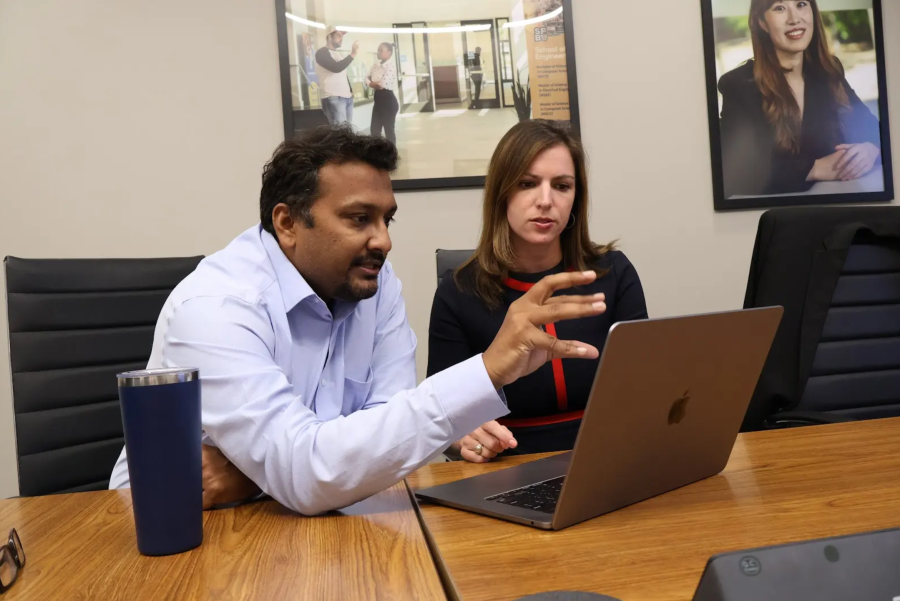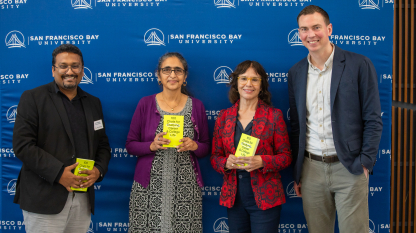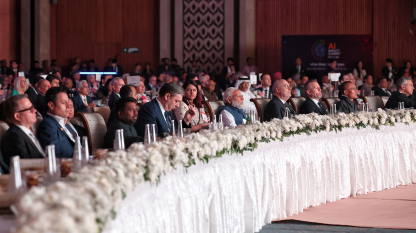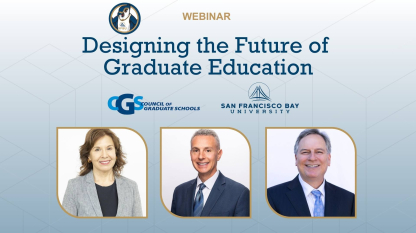
By Jefferson Geiger
Innovation is crucial to San Francisco Bay University, as being on the cutting edge comes with the territory — literally and figuratively.
For Chief Learning Officer Anzar Khaliq, that means using the new Center for Empowerment and Pedagogical Innovation to improve teaching methodologies. Khaliq knows learning is uneven across the board, regardless of institution, and he wants to help faculty become better educators.
To do so, Khaliq utilizes a custom artificial intelligence that acts as an intellectual partner and allows faculty to refine and polish their syllabi and other course materials. The tool is based on an AI assistant called Alma Learning. Instead of simply spitting out an answer, it guides users through the process in a dialogue to create items that represent the culture and ethos of the classroom.
“The AI can actually brainstorm with them and ask fundamental questions,” Khaliq said. “For example, ‘Is this the most cutting-edge content in the field? Is this really accessible? Have you considered the cost of the book? Have you thought about a non-textbook approach to the course?’”
While it hasn’t been long since Khaliq led the workshop on AI, he has already seen success in the faculty. Psychologically, he says people have been more receptive because the suggestions aren’t coming from a colleague or supervisor.
“They don't feel pressure to do something they don't want to,” Khaliq said. “They're going through their own process of conversing with something that they initiated on their own. So the ability or the desire to embrace the ideas which are given are more open.”
Khaliq knows tools like AI make mistakes, but he believes educators — as experts in their field — make the best users since they can spot errors in the proposed content better than students. Additionally, the AI benefits the classroom by suggesting various assignments and projects that enhance student experience, like classes based on TED Talks or the show “Shark Tank.”
“It will create the rise of relational pedagogy,” Khaliq said. “Professors will spend more time developing relationships with students because they will be breaking away from that lecture-only model.”
Khaliq will lead other workshops throughout the academic year to help faculty develop a more reflective relationship with the AI tools.
“We're going to have many conversations around intellectual conversations about the nature of AI, the philosophy of AI and the ethics of AI,” Khaliq said. “We don't want to be mere users. I want to really progress toward the domain where we are going to be the developers of our own tools.”


